Marc Romano - Crossworld: One Man’s Journey into America’s Crossword Obsession
Here you can read online Marc Romano - Crossworld: One Man’s Journey into America’s Crossword Obsession full text of the book (entire story) in english for free. Download pdf and epub, get meaning, cover and reviews about this ebook. year: 2006, publisher: Three Rivers Press, genre: Art. Description of the work, (preface) as well as reviews are available. Best literature library LitArk.com created for fans of good reading and offers a wide selection of genres:
Romance novel
Science fiction
Adventure
Detective
Science
History
Home and family
Prose
Art
Politics
Computer
Non-fiction
Religion
Business
Children
Humor
Choose a favorite category and find really read worthwhile books. Enjoy immersion in the world of imagination, feel the emotions of the characters or learn something new for yourself, make an fascinating discovery.
- Book:Crossworld: One Man’s Journey into America’s Crossword Obsession
- Author:
- Publisher:Three Rivers Press
- Genre:
- Year:2006
- Rating:5 / 5
- Favourites:Add to favourites
- Your mark:
Crossworld: One Man’s Journey into America’s Crossword Obsession: summary, description and annotation
We offer to read an annotation, description, summary or preface (depends on what the author of the book "Crossworld: One Man’s Journey into America’s Crossword Obsession" wrote himself). If you haven't found the necessary information about the book — write in the comments, we will try to find it.
While covering the American Crossword Puzzle Tournament for the Boston Globe, Romano was amazed by the skill of the competitors and astonished by the cast of characters he came acrosslike Will Shortz, beloved editor of the New York Times puzzle and the only academically accredited enigmatologist (puzzle scholar); Stanley Newman, Newsdays puzzle editor and the fastest solver in the world; and Brendan Emmett Quigley, the wickedly gifted puzzle constructer and the Virgil to Marcs Dante in his travels through the crossword inferno.
Chronicling his own journey into the world of puzzlingeven providing tips on how to improve crosswording skillsRomano tells the story of crosswords and word puzzles themselves, and of the colorful people who make them, solve them, and occasionally become consumed by them.
But saying this is a book about puzzles is to tell only half the story. It is also an explanation into what crosswords tell us about ourselvesabout the world we live in, the cultures that nurture us, and the different ways we think and learn. If youre a puzzler, Crossworld will enthrall you. If you have no idea why your spouse send so much time filling letters into little white squares, Crossworld will tell you and with luck, save your marriage.
CROSSWORLD | by Marc Romano
ACROSS
1. I am hopelessly addicted to the New York Times crossword puzzle.
2. Like many addicts, I was reluctant to admit I have a problem.
3. The hints I was heading for trouble came, at first, only occasionally.
4. The moments of panic when I realized that I might not get my fix on a given day.
5. The toll on relationships.
6. The strained friendships.
7. The lost hours I could have used to do something more productive.
8. It gets worse, too.
DOWN
1. Youre not just playing a game.
2. Youre constantly broadening your intellectual horizons.
3. You spend a lot of time looking at and learning about the world around you.
4. You have to if you want to develop the accumulated store of factual information youll need to get through a crossword puzzle.
5. Puzzle people are nice because they have to be.
6. The more you know about the world, the more you tend to give all things in it the benefit of the doubt before deciding if you like them or not.
7. Im not saying that all crossword lovers are honest folk dripping with goodness.
8. I would say, though, that if I had to toss my keys and wallet to someone before jumping off a pier to save a drowning girl, Id look for the fellow in the crowd with the daily crossword in his hand.
Marc Romano: author's other books
Who wrote Crossworld: One Man’s Journey into America’s Crossword Obsession? Find out the surname, the name of the author of the book and a list of all author's works by series.

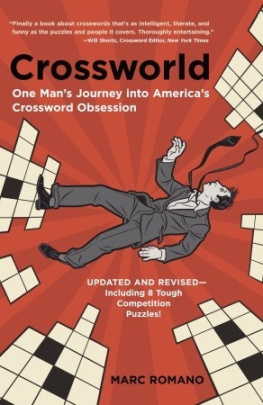
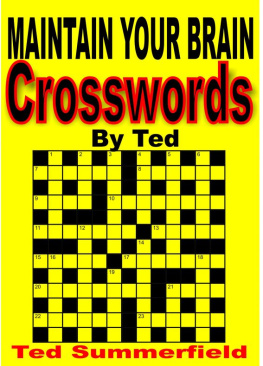

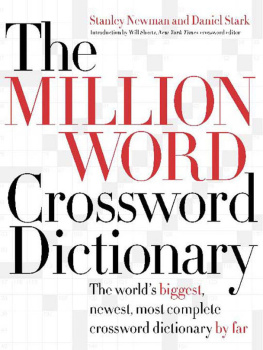
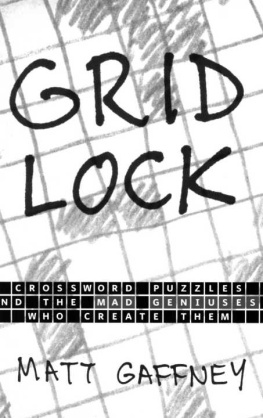
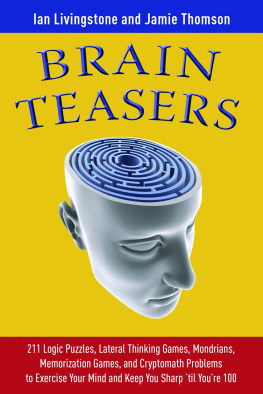
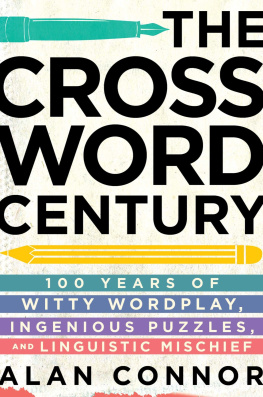
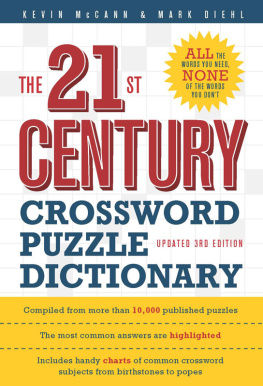
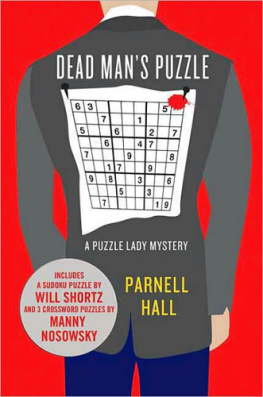
 Chapter 1
Chapter 1 